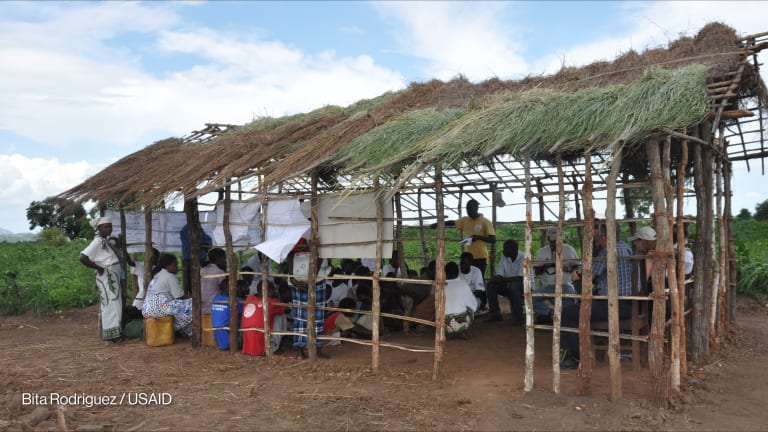
WASHINGTON — Stability in the Sahel is dependent on food security, according to U.S. Agency for International Development Administrator Mark Green.
“Food security is absolutely key to all our work in the region,” Green said at a Senate Appropriations subcommittee hearing Tuesday.
“We all know that these countries, if they fail to be more food secure, it’s going to be a cycle feeding on itself in terms of loss of economic opportunity, displacement, and again fertile ground for radicalization,” he said.
Catch up on what’s happened in the Sahel:
► USAID expands presence in Sahel as instability grows
The situation in the Sahel is deteriorating as violence increases and instability grows — with more than 2,000 civilians killed in the region in 2019 and 4,000 displaced every day in Burkina Faso since the start of 2020, according to Green. This is the result of a number of factors, including extremism and interreligious conflict as well as a lack of responsive governance and economic opportunity, and a decline of national resources, he said.
USAID works in the region in a number of different ways, both providing humanitarian relief and implementing development programs focused on food security, resilience, and governance, he said.
In December the Department of Defense announced it would review the troops and operations in Africa as it looks to shift resources to counter Russian and Chinese aggression. A bipartisan group of lawmakers questioned the administration’s consideration of a troop reduction in Africa, particularly in the Sahel, where they believe the operations to be critical to national security. Several lawmakers repeated those concerns at the hearing Tuesday.
Sen. Lindsey Graham, the ranking Republican on the Senate Appropriations Committee and Subcommittee on State, Foreign Operations, and Related Programs, asked several questions of USAID and State Department officials about the potential impacts of a troop drawdown.
U.S. forces in the region are helping support French forces who are leading the efforts, and if they left, or if the French pulled back, it would likely have immediate impacts on aid needs in the region, Green said. There would be an acceleration of displacement and human suffering that could be “easily exploited” by extremists, he said.
“While we try to remain adaptable and flexible in how we provide humanitarian and development assistance, obviously we can do much more if the situation is secure and stable,” Green said.
A large portion of security spending goes through the State Department in partnership with Pentagon personnel, and if the Defense Department did decide to make cuts, the State Department would try to sustain its important work in the region, said Under Secretary for State for Political Affairs David Hale.
It is important that the U.S. look at “legitimizing and expanding state presence” in the region, working to bolster good governance, Hale said.
The State Department is bolstering diplomacy in the region, but continued U.S. investment requires improved performance from partners, Hale said.
On March 1, J. Peter Pham took on the post of U.S. Special Envoy for the Sahel Region of Africa and will be helping to increase diplomatic engagement, coordinate the international community, and push U.S. policy priorities including greater regional participation and Mali’s implementation of the Algiers accord, he said.
The Global Fragility Act, which passed in late 2019, will give the administration the ability to better coordinate integrated stabilization strategies and expand reform, Hale said, adding that the administration is working on developing the global fragility strategy required by the legislation. The bill authorized $200 million a year over five years for a Prevention and Stabilization Fund, and Hale said the State Department would appreciate flexibility in how it can disperse that funding.
The administration is required to submit that initial global fragility strategy on Sept. 15, a deadline Hale said he thinks the administration will meet.
The officials also received questions about their work with women in the region, particularly in terms of how the administration was following through on directives in the Women, Peace, and Security Act.
Green said he recognizes that including women in conflict mitigation is critical and leads to more sustainable outcomes. USAID programs are working to address early and forced marriage in Niger, targeting women with food security programs in Burkina Faso, and supporting community savings and loans programs that promote leadership and decision-making in Mali.
On the political side, Mali’s peace process must include women, Hale said, adding that the State Department is supporting leadership programs in Burkina Faso and partnering with Niger’s government to help it prioritize the inclusion of women in its military forces.








